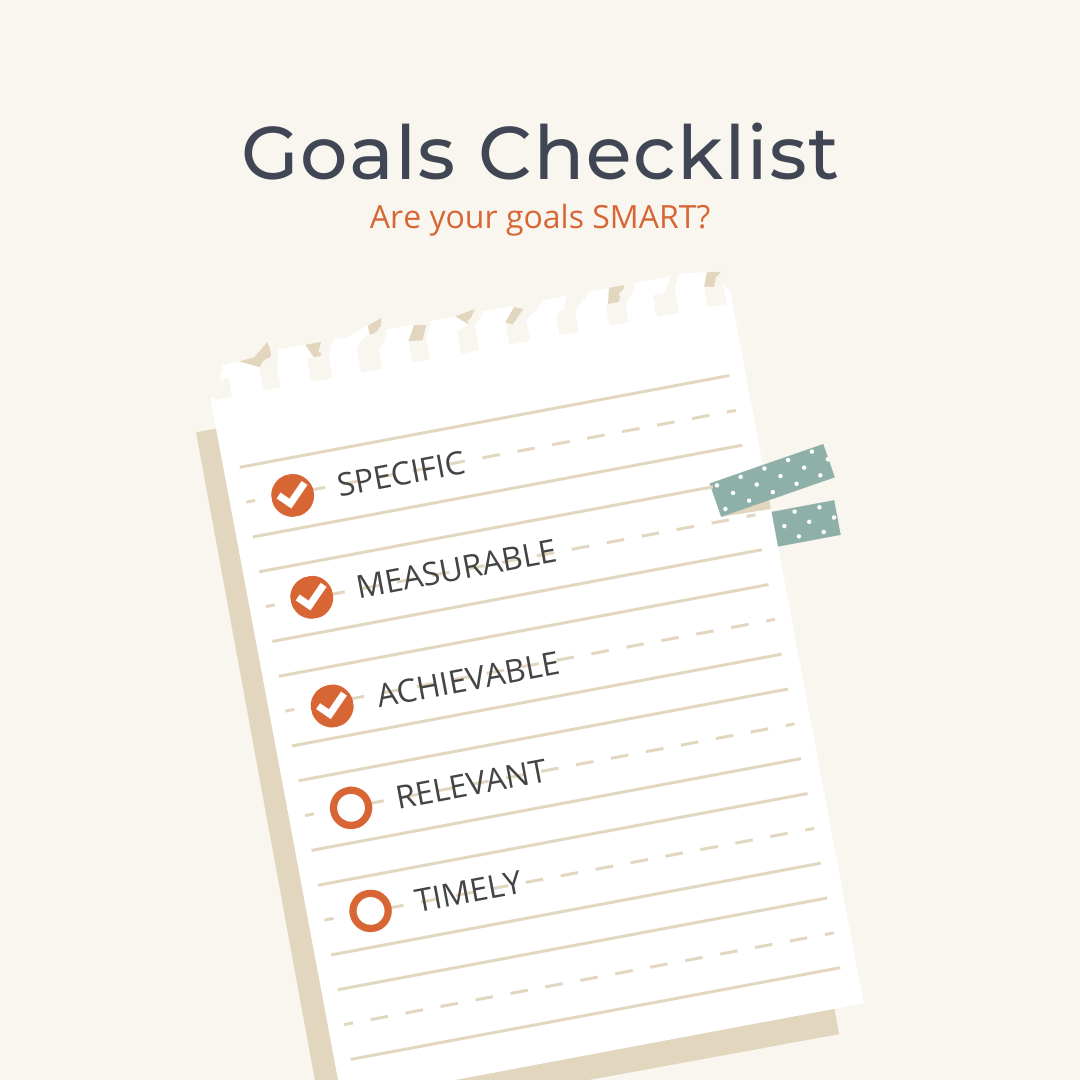How To Overcome The Fear Of Rejection
No matter who you are or what you do, everyone faces a fear of rejection to one degree or another.
You might fear not getting that job you really want or the promotion you need. Or you may fear rejection when starting a new relationship or even speaking in public.
But when your fear of rejection prevents you from progressing in your career, developing healthy relationships, or having high self-esteem, then it’s a sign you need to learn how to overcome the fear of rejection.
It begins with understanding what your fear of rejection is, what causes it, and what effects it can have on your life. Then, you can apply my six-step solution to help you overcome your fear of rejection and live your life to its fullest.
Understanding Fear of Rejection
Rejection is a powerful force that can hold us back from achieving our goals and living a fulfilled life. It is the feeling of being left out, not accepted, or simply not good enough. This is a natural human emotion, and research shows that it can be just as painful as physical pain.
As human beings, we are wired to be social, to have connections with others, and to want to belong. It is just a normal part of our life.
However, it’s important to remember that rejection is a normal part of life. Whether it’s romantic rejection, professional rejection, or even rejection from friends or family, it happens to everyone at some point. It’s how we choose to respond to rejection that makes all the difference.
Sometimes, we may even feel rejected even if someone didn’t have any intention of excluding us. This can be due to a lack of confidence or misunderstandings in communication.
To move past rejection, it’s important to understand what it really means. It doesn’t define your worth, nor does it determine your future success. You must learn to let go of the fear of rejection and embrace the possibilities that come with taking risks and trying new things.
By choosing to persevere and grow from rejection, you can achieve your greatest goals and become the best version of yourself.
Rejection vs. Failure
Fear of rejection and fear of failure are two of the biggest obstacles that can hold you back from achieving your goals and realizing your full potential. Both can be hard to overcome, but you should also know that they’re not the same.
Fear of failure is when you avoid doing something for fear of not succeeding. This can lead to missed opportunities and a lack of progress in your personal and professional life.
On the other hand, fear of rejection arises when you avoid doing something because you won’t be accepted by others. This can be especially difficult to cope with because it involves the social aspect of human interaction.
While it’s natural to feel pain and disappointment when facing rejection, it’s important to recognize that rejection is a normal part of life. Whether it’s a book proposal that’s been turned down or a job opportunity that didn’t work out, rejection is inevitable when you’re striving to achieve something meaningful.
So the key is not to fear rejection but to embrace it as an opportunity to learn and grow. By preparing yourself for rejection and reframing it as a valuable learning experience, you can actually use it to fuel even greater success.

Dealing With Rejection in Different Situations
The world is designed to offer us learning opportunities, and luckily, you can easily learn how to deal with rejection with a simple mind shift. By building your confidence and resilience, you can bounce back from any rejection and even help prevent it from happening.
Job Interviews
Fear of rejection can prevent us from being our true selves in a job interview. You might say what you think the interviewer wants to hear or leave out information about yourself in hopes of securing the job. However, that lack of authenticity will only lead to stress and anxiety as you struggle to maintain the façade on the job.
Instead, be confident in your abilities and honest about your shortcomings. Express your desire to learn and grow with the company, while still contributing all of your current skills. If you don’t get the job, realize that there are many other job opportunities to pursue, and the one that fits you best is the one that will make you the happiest.
Career Progression
You may feel bad asking for a promotion at work because you fear being rejected, which is very understandable. However, avoiding the conversation altogether can lead to mounting frustration and a lack of engagement in your work.
Before asking for a promotion, raise, or opportunity at work, arm yourself with reasons you qualify for the advancement. Practice your pitch and deliver it with confidence.
If you do get turned down, don’t let it discourage you. Instead, ask for feedback on how you can improve and take it as a learning opportunity. And remember, you’re always in control of your own career path. If you feel like it’s time to seek new opportunities elsewhere, don’t be afraid to take action.
Work-Life Balance
It’s easy to become consumed with work responsibilities and neglect your own needs or your loved ones. While financial obligations and career advancement are important, neglecting your personal life can lead to lower productivity, strained relationships, and resentment.
The fear of rejection can often drive you to engage in people-pleasing behaviors, such as taking on more work than you can handle or sacrificing your personal time to meet work demands.
However, these behaviors ultimately lead to negative consequences and prevent you from achieving true success and happiness.
Prevent this by setting boundaries for yourself and maintaining a focus on your priorities. Instead of saying, “I can’t work on the nights my son has a baseball game,” say, “I don’t work on the nights my son has a baseball game.”
When faced with a demanding project or task, don’t be afraid to ask questions and negotiate to ensure it aligns with your goals and values. Setting boundaries for yourself eliminates the focus on rejection and puts you in the driver’s seat.
Entrepreneurship
In the world of entrepreneurship, the fear of rejection can be a major obstacle for those considering a new business venture. The possibility of your idea not being accepted can be daunting, leading many to avoid even trying for fear of failure or ridicule from others.
However, the most successful entrepreneurs will tell you that rejection is an inevitable part of the journey to success. In fact, it’s often through rejection that we learn and grows the most, ultimately leading us to even greater achievements.
Combat this by cultivating an unshakable belief in yourself. Trust in the deep desire within you that fuels your dream and use it as a source of strength to push past doubts and fears.
Build your confidence by listing all of your strengths, talents, and abilities and reviewing them every day. Use positive affirmations to develop an optimistic mindset and create a plan for your business to make it all happen.
Goal Setting
Most people set goals, but many people struggle to achieve them. Goal-setting is synonymous with change, but change can cause significant anxiety and fear.
You may find that poor self-esteem is negatively affecting your ability to stick to your goals. Perhaps you think you don’t deserve change or will face rejection if you do change.
Remember that every rejection you encounter is an opportunity to grow and become your best self. Set SMART goals that are realistic and achievable so you can stick to them.
Allow your desire for more and better to be greater than your fears, and soon you will forget what you were afraid of in the first place.
Public Speaking
Being a confident and effective public speaker can be the difference between success and failure. Fear of rejection can hold you back from achieving your full potential.
But you can overcome this fear by preparing thoroughly and focusing on the value you bring to the table. Make sure you know your subject matter inside and out, and practice your delivery until it feels natural and confident.
Remind yourself of the positive impact you can have on your audience. Imagine the positive feedback and responses you will receive, and let that motivate you to do your best.
By taking these practical steps and cultivating a positive mindset, you can overcome your fear of rejection and become a powerful and effective public speaker.
Relationships
Fear of rejection can prevent you from forming new relationships and inhibit your ability to maintain healthy relationships with those you already know.
It can prevent you from expressing yourself honestly and openly, causing you to hold back and avoid vulnerability. This can lead to unhealthy patterns of behavior, such as people-pleasing or compromising your values.
To overcome this fear, it’s important to first recognize and acknowledge your feelings. Then, you can challenge your negative thoughts and beliefs about yourself and your worth. Understand your value by talking to those who care about you and allowing them to be helpful.
Consider working with a qualified healthcare provider, such as a therapist or counselor, to address underlying issues and learn new strategies for coping with rejection. With time and practice, you can develop a healthier mindset and stronger relationships with those around you.
The Root Cause of Fear of Rejection
Understanding the root cause of your fear of rejection allows you to face it head-on and prevent it.
Oftentimes, past experiences with rejection can cause a person to fear experiencing it again. If you’ve been rejected before, it’s natural to want to avoid that pain again in the future.
People who experience mental health issues like anxiety, depression, loneliness, low self-esteem, or self-criticism are more likely to struggle with rejection fear as well. It’s essential to recognize that these issues may be influencing your thoughts and feelings about rejection and take steps to address them.
Social conditioning and personal insecurities can also play a role in the development of your fear of not being accepted. By identifying and challenging these negative beliefs and attitudes, you can overcome your fear of rejection and pursue your goals with confidence.
Social Conditioning
Because it’s human nature to want to be accepted and not feel isolated, social rejection or social exclusion are situations you’ll want to avoid.
As a child, you’re conditioned to respond to social situations in certain ways based on the reactions of those around you. Whether it’s pleasing your parents or conforming to the expectations of your classmates or colleagues, you learn to adapt your behavior to gain acceptance from others.
However, social conditioning can be unlearned to conquer your fear of rejection. Start by identifying and challenging limiting beliefs that stem from social conditioning, such as:
- Working harder (instead of working smarter) is necessary to earn more money
- I can’t afford nice things (instead of I can save up, find a discount, or a better alternative)
- No one has ever done that before (instead of anything is possible)
Personal Insecurities
How you feel about yourself often contributes to the fear of rejection. If you harbor uncomfortable emotions, such as shame, guilt, worthlessness, or self-doubt, you’re more likely to fear not being accepted.
Some signs of personal insecurities include avoiding eye contact, feeling anxious, being overly passive, exhibiting passive-aggressive behaviors, not feeling equal to others, and trying to be like someone else instead of yourself. Perfectionism and negative thinking are additional signs.
The antidote is to build self-love and self-acceptance. Studies have shown that self-confidence is related to higher levels of income.
Boost your confidence by recognizing what you’re good at, surrounding yourself with positive people and messages, learning how to say no, being kind to yourself, forgiving yourself, and ridding yourself of negative self-talk.
Remember that whatever you believe with conviction becomes your reality, whether it’s true or false.
Steps to Overcome Your Fear of Rejection
The opposite of fear is actually love, self-love, and self-respect. Acting with courage and self-compassion in a fearful situation boosts your regard for yourself to such a degree that your fears subside and lose their ability to affect your behavior and decisions.
One of the most powerful techniques ever developed for overcoming fear and relieving stress is called the “worry buster.”
Many people have come back to me and said that this simple method has changed their attitudes from negative to positive and made them more effective in their work and personal lives than they had ever thought possible.
Here are the six steps of my formula:
Step 1: Define the Problem
Step one is to define the problem or situation you’re worrying about clearly in writing.
The best way to do this is to take a pad of paper and draw a line from top to bottom right down the middle.
On the left side of the pad of paper, write a clear description of your problem by answering the questions, “What exactly am I worrying about?” and “What are the underlying issues here?
Fully 50% of all problems can be solved at this definition stage. In medicine, they say that “Accurate diagnosis is half the cure.” Many of our worries exist because we have not taken the time to sit down and really define clearly what it is that is bothering us.
Step 2: Write Out The Worst Possible Outcome
Step two is to write out the worst possible outcome of the worry situation. On the right-hand side of the page, answer the question, “What is the worst possible thing that can happen as a result of this problem?”
You may lose your money, lose your relationship, lose your job, your investment, your health, or your prestige. Whatever it is, write it down.
Steps one and two will quickly start relieving the stress that causes worry.
What we have found is that it is resistance to facing the worst possible outcome that causes most of the anxiety and stress associated with worry. Once you have written down the worst possible thing that can happen, you will find that you will slowly stop worrying.
Step 3. Accept The Worst Possible Outcome
Step three is to resolve to accept the worst possible outcome, should it occur. Just say to yourself, “Well, if it happens this way, I’ll learn to live with it or take steps to change it.”
Once you have resolved to accept the worst, should it occur, you no longer have anything to worry about. All the stress caused by denial, by refusing to face what the worst could be, suddenly disappears.
Now, determine what can be done to prevent the worst from happening. By identifying your worst fear and accepting it, your mind is now open to being creative so you can problem-solve without fear inhibiting your thought processes.
Step 4: Develop a Growth Mindset
Next, start to develop a growth mindset and build resilience to overcome the fear of rejection.
Instead of spending your time worrying about what could go wrong, focus your energy on strengthening your belief that has the inherent ability to develop your skills, talents, and intellect. This growth mindset is all about personal development as opposed to a fixed mindset that tells you your life cannot change.
Start developing helpful habits, such as:
- Following the examples of others who are positive thinkers
- Seeing failure, rejection, and challenges as opportunities and learning experiences
- Not comparing yourself to others
- Speaking and thinking positively about yourself
- Being a life-long learner
- Asking for feedback from people you respect and whose values you admire
- Setting realistic goals
Step 5: Lean on Others for Help
Don’t be afraid to ask for help from trusted friends, family, work associates, counselors, or healthcare providers.
Overcoming anything is usually easier when we lean on others for help. They can give us the hope and encouragement we need to understand our feelings, improve our mental health, and strive for success.
Step 6: Celebrating Small Wins
Celebrating small wins can help build confidence and self-esteem. Set small, daily goals for yourself. Each time you take steps to overcome your fears, self-limiting beliefs, or negative habits, recognize this and credit yourself for making progress.
When you are feeling rejected, remember the successes you have had.
Remember, worry is merely a sustained form of fear caused by indecision. The only real antidote to worry is purposeful action. Get so busy doing something about your situation that you don’t have time to worry. As you take action, your confidence, courage, and sense of control will return and wipe away your fears.

Tips to Overcome Fear of Rejection
To help you have even more success using the “worry buster” strategy, use these additional tools and techniques to build resilience and overcome your fear of rejection.
Use Positive Affirmations and Visualization
Integrating positive affirmations and visualization into your daily routines will help you build self-confidence and overcome the fear of rejection.
Positive affirmations are phrases you say to yourself consistently that challenge your limiting beliefs and negative self-talk. Practice these and create your own:
- I am loved.
- No matter what happens, I am in control of my choices
- Today is a great day; it’s wonderful to be alive!
- I believe in the perfect outcome of every situation in my life.
Visualization is a matter of seeing the life you want to live in your mind so that you can make it come into existence. Creating a vision board is an excellent way to help you focus your dream life on overcoming fears.
Be Mindful
Develop self-compassion by using mindfulness in overcoming the fear of rejection.
Mindfulness and meditation can help you build self-awareness so that you are in touch with your feelings, focus on things that truly matter, and strengthen your mental health and resilience.
Slow your pace down and pay attention to the beauty that is around you. Develop gratitude for everything. In moments of stress or doubt, calm yourself by breathing deeply.
Set Realistic Goals
Setting realistic goals can help you overcome the fear of rejection. Remember, to have the greatest chance at success, your goals should be:
- Specific
- Measurable
- Achievable
- Relevant
- Timebound
Overcome Your Fear of Rejection
Overcoming your fear of rejection starts with recognizing that it’s natural, identifying the root cause, and applying the worry-buster steps and additional strategies to develop confidence and healthy habits.
Download my Personal Development Template to help you get started on achieving anything you want out of life.
« Previous Post
Consultative Selling Process: Examples, Benefits & Techniques
Next Post »
How Do You Measure True Success In Life
About Brian Tracy — Brian is recognized as the top sales training and personal success authority in the world today. He has authored more than 60 books and has produced more than 500 audio and video learning programs on sales, management, business success and personal development, including worldwide bestseller The Psychology of Achievement. Brian's goal is to help you achieve your personal and business goals faster and easier than you ever imagined. You can follow him on Twitter, Facebook, Pinterest, Linkedin and Youtube.




